The 2026 Symposium on Teaching and Learning has regrettably been canceled.

Rice University's Thirteenth Annual Symposium on Teaching and Learning
hosted by the Center for Teaching Excellence
Date: Friday, January 9, 2026
Time: 11:00AM-1:30PM
Location: O'Connor 130
Faculty, Staff, Students, and Alumnae/i are welcome to attend.
| 11:00 AM |
Welcome and Introduction |
| 11:05 AM |
Keynote Address |
| 12:00 PM |
Break and Lunch Pickup |
| 12:15 PM |
Lunch and Workshop |
Past Symposia
- 2025 Symposium Schedule
-
Rice University's Twelfth Annual Symposium on Teaching and Learning
Friday, January 10, 2025
11AM – 1:30PM11:00 AM
Welcome and Introduction
11:10 AM
"Trust Me: Building Trust with Our Teaching and Feedback to Enable Learning"
Powerpoint PresentationPeter Felten, Executive Director, Center for Engaged Learning
Assistant Provost, Teaching and Learning
Professor of History
Elon University
Trust is important for student learning, motivation, and well-being in higher education. When students trust faculty and their classroom peers, they are more likely to persist through academic struggles. Unfortunately, many students have had negative experiences in education that lead them to enter our courses with low trust or even mistrust. What can we as instructors do to build trust through our teaching and grading practices? This keynote and interactive workshop will draw on an international study of faculty “trust moves” in large-enrollment courses to explore practical approaches to helping students develop trust in us, each other, and themselves in ways that contribute to their academic success and well-being.
12:00 PM
Lunch and Workshop
- 2024 Symposium Schedule
-
Rice University's Eleventh Annual Symposium on Teaching and Learning
Friday, January 5, 2024
9AM – 6PM9:00 AM
WELCOMING REMARKS | McMurtry Auditorium
Provost Dittmar9:15 AM
WHAT FOR?: LIBERAL EDUCATION AND WHY IT MATTERS
Elizabeth Loizeaux, Special Advisor to the Provost, Boston University10:45 AM
EXPLORING THE TRENDS IN 21ST-CENTURY GEN ED DESIGN
Paul Hanstedt, Vice Chancellor for Academic Affairs and Innovation, University of Minnesota Rochester
12:00 PM
LUNCH catered by Picnic | Duncan Hall
1:15 PM
FUTURE-PROOFING GENERAL EDUCATION THROUGH HIGH-IMPACT PRACTICES
Ashley Finley, Vice President for Research and Senior Advisor to the President American Association of Colleges and Universities
2:45 PM
INNOVATIVE TEACHING STRATEGIES AND HIGH-IMPACT PRACTICES | Brockman 101
Experiential Learning, Lesa Tran Lu, Executive Director, Institute for Biosciences and Bioengineering
Global Experiences, Nia Georges, Professor of Anthropology
Big Questions, Fay Yarbrough, Associate Dean of Humanities
Analyzing Diversity, Alex Byrd, Vice Provost for Diversity, Equity, and Inclusion
3:45 PM
BREAK-OUT SESSIONS AND DISCUSSION
5:00 PM
RECEPTION | Brochstein Pavilion - 2023 Symposium Schedule
-
Rice University's Tenth Annual Symposium on Teaching and Learning
Friday, January 3, 2023
11:00 AM – 1:30 PM
Brockman Hall 10111:00 AM
Welcome and Introduction
11:10 AM
"Talk Matters: Investigating the Nature of Non-Content Classroom Language – Instructor Talk – that May Mediate Student Inclusion, Engagement, and Learning"
Dr. Kimberly Tanner
Professor of Biology | San Francisco State University
Through the language they use, instructors create classroom environments that have the potential to impact learning by affecting student motivation, resistance, belonging, and self-efficacy. However, despite the critical importance of instructor language to the student experience, little research has investigated what instructors are saying in undergraduate classrooms. We systematically investigated instructor language that was not directly relate to content and defined this as Instructor Talk and identified five robust categories of Instructor Talk that can characterize ~90% of non-content language found in over 60 courses: 1) Building Instructor/Student Relationships, 2) Establishing Classroom Culture, 3) Explaining Pedagogical Choices, 4) Sharing Personal Experience, and 5) Unmasking Science. The remaining ~10% of instances of Instructor Talk in these settings were categorized as negatively-phrased or potentially discouraging in nature. Attention to Instructor Talk in undergraduate classrooms may be key for instructors to create inclusive learning environments and promote student learning.12:00 PM
Lunch and Workshop
-
2022 Symposium Schedule
-
Rice University's Ninth Annual Symposium on Teaching and Learning
Friday, January 7, 2022
11:00 AM – 1:00 PM
Zoom11:00 AM
Welcome and Introduction
11:10 AM
"Moving Beyond Diversity to Create Inclusive, Affirming, and Equitable Learning Environments”
Dr. Frank Tuitt
Vice President and Chief Diversity Officer | University of ConnecticutDespite best efforts to advance diversity, postsecondary institutions around the world have found themselves in the midst of campus protests. Arguably, at the heart of increased activism on college campuses around the world is the failure of postsecondary institutions to create more inclusive, affirming, and equitable learning environments where minoritized students can experience teaching that suggest their lives and their lived experiences really matter. Accordingly, this presentation explores how predominantly White institutions can move beyond diversity to promote inclusive, affirming, and equitable learning environments both in and outside of the classroom.
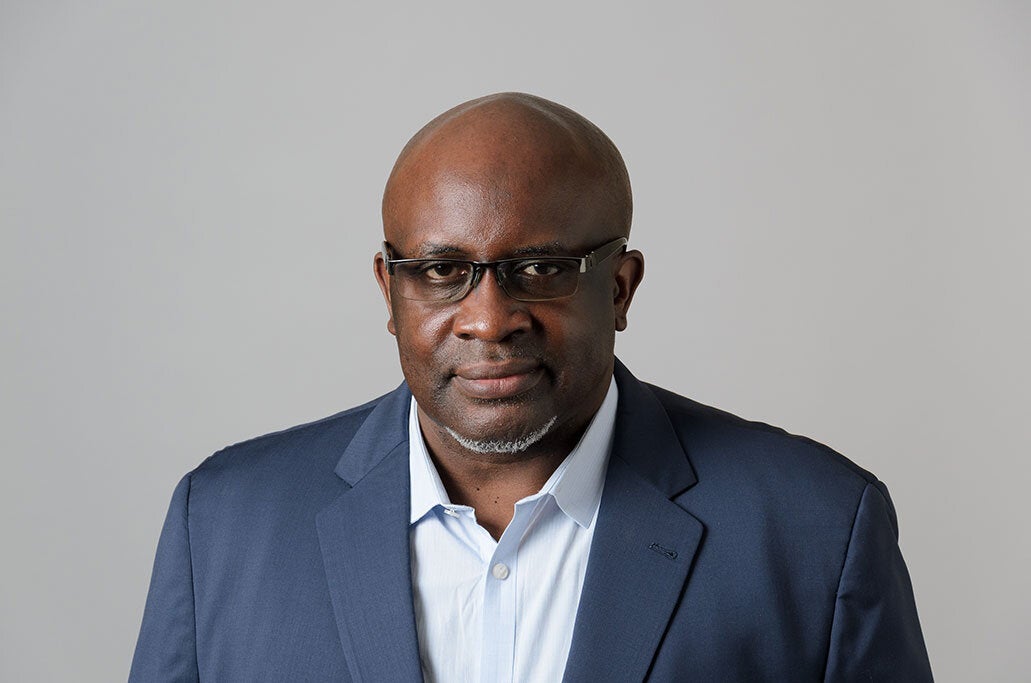
12:25 PM
Q&A
12:55 PM
Closing Remarks
-
2021 Symposium Schedule
-
Rice University's Eigth Annual Symposium on Teaching and Learning
Friday, January 15, 2021
11:00 AM – 12:30 PM
Zoom10:00 AM
Welcoming Remarks
10:15 AM
Keynote Address: “The Science of Learning: Evidence-based Approaches to Create Contexts where Learners Thrive”
Creating educational environments where students can thrive has never been more challenging than it is today. Nonetheless, the basic tenets of how people learn remain the same, regardless of how content is delivered (online, in-person, or a bit of both). This talk will review the science of learning, with a focus on evidence-based principles for enhancing student engagement and learning.
Margaret Beier
Professor, Psychological Sciences | Rice UniversityTalk Matters: Investigating the Nature of Non-Content Classroom Language – Instructor Talk – that May Mediate Student Inclusion, Engagement, and Learning
Margaret Beier is a Professor of Psychology at Rice University in Houston, TX. Margaret’s research examines lifelong learning and she has published on the interaction between person-factors such as age, gender, abilities, and motivation and learning contexts in educational and workplace environments. She was a member of the National Academy of Sciences; Science and Practice of Learning Committee, which produced the 2018 report, How people learn II: Learners, contexts, and cultures. She is a fellow of the Society for Industrial and Organizational Psychologists (SIOP) and a fellow of the Association for Psychological Science (APS).
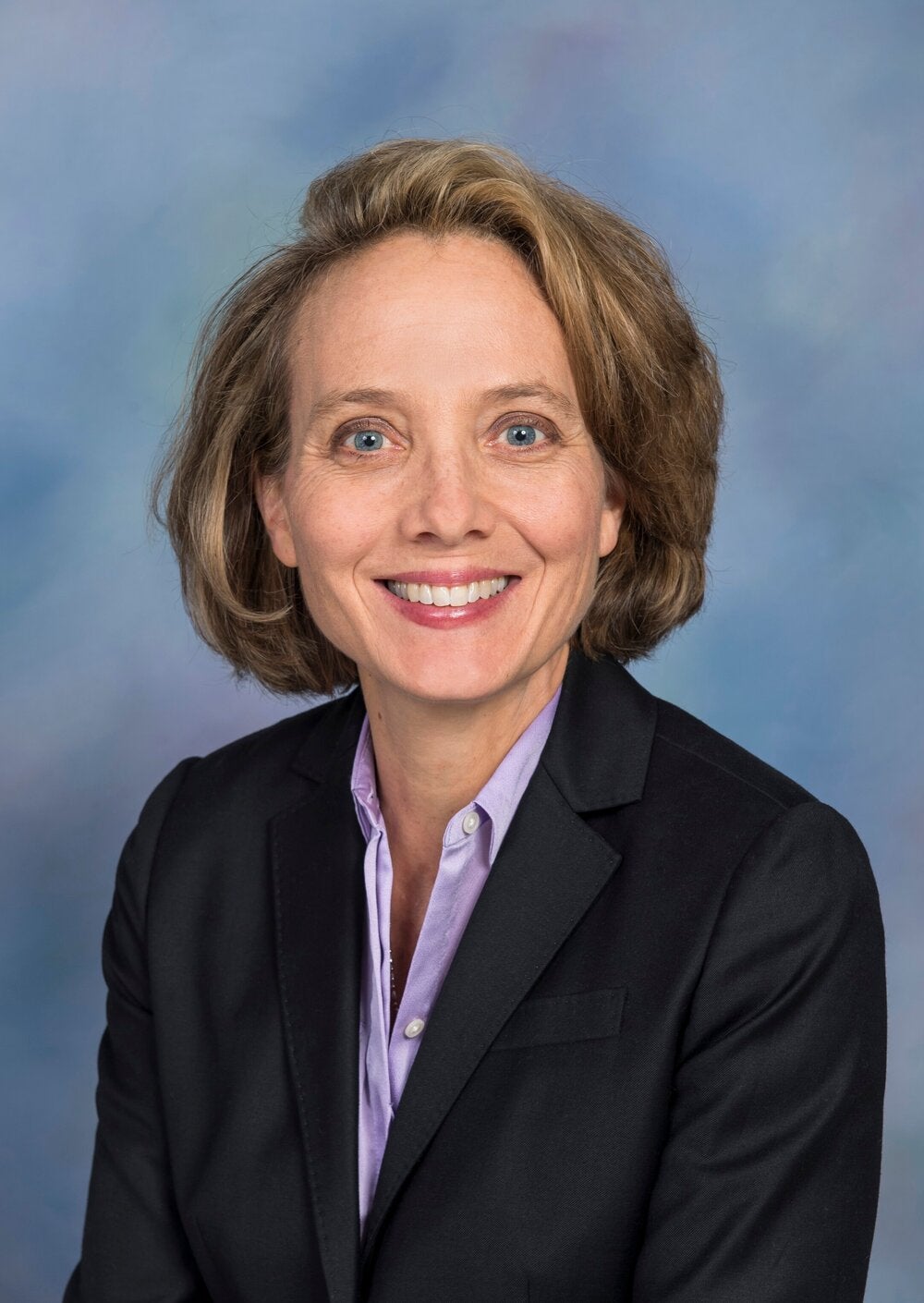
11:00 AM
Panel Discussions with Rice Faculty: Lesson Learned Teaching in 2020
The keynote address will be followed by four concurrent panel discussions with Rice faculty. At the time of registration you will be asked to select one panel discussion.
“Building Connection with Students”
Jonathan Homola, Assistant Professor, Political Science
Carrie McNeil, Lecturer, Chemistry
Molly Morgan, Lecturer, Anthropology
Sandy Parsons, Associate Teaching Professor, Psychological Sciences“Creating Community Across Modalities”
Sabia Abidi, Lecturer, Bioengineering
Margarita M. Castromán, Assistant Professor, English
Burke Nixon, Lecturer, Program in Writing and Communication
Ray Simar, Professor in the Practice, Electrical & Computer Engineering“Adapting Assessments and Feedback”
Don Johnson, J.S. Abercrombie Professor Emeritus, Electrical & Computer Engineering
Kristi Kincaid, Associate Teaching Professor, Chemistry
Natasha Kirienko, Assistant Professor, BioSciences
Paul Treacy, Lecturer, Policy Studies“Balancing Flexibility, Expectations, and Rigor”
Beth Beason-Abmayr, Teaching Professor, BioSciences
Alex Byrd, Vice Provost for Diversity, Equity and Inclusion, Associate Professor, History
David Li, Lecturer, Bioengineering
Kasey Leigh Yearty, Instructor, Chemistry -
2020 Symposium Schedule
-
Rice University's Seventh Annual Symposium on Teaching and Learning
Friday, January 10, 2020
11:00 AM – 1:30 PM
Brockman Hall 10111:00 AM
Welcoming Remarks
11:10 AM
"The Promise and Practice of Inclusive Teaching"
Dr. Bryan Dewsbury
Assistant Professor | University of Rhode IslandSuccess broadly defined in courses in general is determined by a number of diverse variables including the degree to which the student is socially connected to classroom experience and discipline. As key stakeholders in the education community, we can play a critical role in constructing an environment that promotes equity and prepares each individual for transformative engagement in the academic experience. Transformation involves expanding our pedagogy to be inclusive pedagogy through a critique of our cultural assumptions about students, self, and others remaining from our childhood perspectives. The keynote address will highlight the results of five years of an inclusive approach to an introductory biology course, and make suggestions for those interested in embarking on inclusive pedagogies for their own contexts. The subsequent workshop will help participants confront the complexity that is the social difference, and discuss how that difference can be either be a hindrance or strength depending on how we allow it to impact the classroom experience.
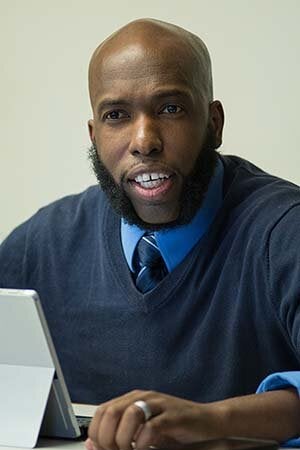
12:30 PM
Lunch and Workshop
-
2019 Symposium Schedule
-
Rice University's Sixth Annual Symposium on Teaching and Learning
Friday, January 4, 2019
11:00 AM – 1:30 PM
Brockman Hall 10111:00 AM
Welcoming Remarks
11:10 AM
“Reframing the Lecture as a Pedagogy of Engagement”
Dr. Claire Major
Professor | University of AlabamaEducators today would be hard pressed to identify a teaching technique more heartily maligned than the lecture. Critics have called lectures boring, obsolete, old-fashioned, overused, and even unfair. Scholars have declared lectures the losers of the pedagogical cage match with active learning. The criticisms, however, often are leveled at one type of lecture: the full-session, transmission-model lecture. Moreover, researchers have most often compared full-class transmission lectures to lectures interspersed with active learning strategies, and it is the latter that is the more effective approach. Interactive lecturing is a model for combining lectures and active learning techniques in a way that can engage students and improve their learning.
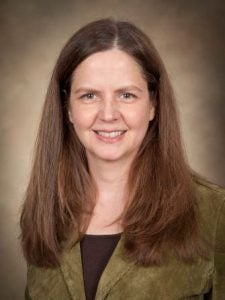
12:30 PM
Lunch and Workshop
-
2018 Symposium Schedule
-
Rice University's Fifth Annual Symposium on Teaching and Learning
Friday, January 5, 2018
11:00 AM – 1:30 PM
Brockman Hall 10111:00 AM
Welcoming Remarks
11:10 AM
"Why Won't They Talk: Using Discussion to Facilitate Learning"
Dr. Jay Howard
Dean, College of Liberal Arts and Sciences
Acting Dean, College of Communication
Professor of Sociology | Butler UniversityFaculty often wish to engage students in class discussion, but sometimes our efforts fall flat and we give up. Why should we seek to engage students? What classroom norms sometimes undermine students’ participation? Which students are most likely to participate and to choose not to participate? How can an instructor manage both the dominant talkers and the quieter students? We will engage each of these questions utilizing a review of the research to identify ways to structure class discussion to engage students and maximize learning.
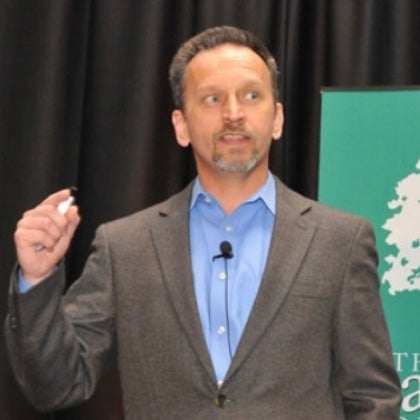
12:30 PM
Lunch and Workshop
-
2017 Symposium Schedule
-
Rice University's Fourth Annual Symposium on Teaching and Learning
Friday, January 6, 2017
11:00 AM – 1:30 PM
Brockman Hall 10111:00 AM
Welcoming Remarks from Paula Sanders, Vice Provost for Academic Affairs
11:10 AM
"Powerful But Invisible: Psychological Process Shaping Student Success"
Dr. Geoffrey Cohen
James G. March Professor of Organizational Studies in Education and Business
Professor, Department of Psychology
Professor of Organizational Behavior (by courtesy) | Stanford Graduate School of BusinessThematic Focus on Inclusive Teaching
12:30 PM
Lunch and Workshop
-
2016 Symposium Schedule
-
Rice University's Third Annual Symposium on Teaching and Learning
Friday, January 15, 2016
10:00 AM – 2:00 PM
McMurtry Auditorium, Duncan Hall10:00 AM
"Inside the Undergraduate Classroom: Instructor Practices and Barriers to Implementing Active Learning Strategies at Rice"
Margaret Beier
Professor, Psychological Sciences | Rice University11:15 AM
Lunch and Roundtable Discussions
12:15 PM
"Teaching for Learning: Evidence-Based Strategies Designed to Help Students Learn Difficult Material"
Todd D. Zakrajsek
Executive Director, Academy of Educators
Associate Professor, Department of Family Medicine | University of North Carolina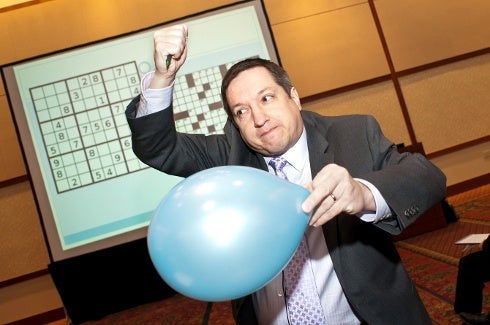
-
2015 Symposium Schedule
-
Rice University's Second Annual Symposium on Teaching and Learning
January 16, 2015
10:00 AM – 3:30 PM
McMurtry Auditorium, Duncan Hall10:00 AM
Welcome and Introduction
George McLendon
Howard R. Hughes Provost
Professor of Chemistry, Biochemistry, & Cell Biology | Rice UniversityJoshua Eyler
Director, Center for Teaching Excellence
Adjunct Associate Professor, Humanities | Rice University10:15 AM
Faculty and Student Roundtable Discussions
Anthony Bosman
Ph.D. Student in Mathematics | Rice UniversityKimberly Reichel
Ph.D. Student in Applied Physics | Rice UniversityJennifer Bulcock
Ph.D. Student in Philosophy | Rice UniversitySarah Schwettmann
Computational and Applied Mathematics, Cognitive Science
Class of 2015 | Rice UniversityMatthias Henze
Professor of Religion | Rice UniversityScott Solomon
Professor of BioSciences | Rice UniversityTrent Navran
Executive Vice President, SA, Rice Education of the Future
Class of 2015, Cognitive Science | Rice UniversityNick Thorpe
Political Science, Policy Studies
Class of 2015 | Rice UniversityBarbara Ostdiek
Senior Associate Dean for Degree Programs
Associate Professor of Finance & Statistics
Jones Graduate School of Business | Rice University11:30 PM
Lunch in Martel Hall
12:45 PM
Keynote Address and Workshop
Ed Prather
Associate Professor of Astronomy
Executive Director of the Center for Astronomy Education | University of Arizona
2011 Recipient, David Halliday and Robert Resnick Award for Excellence in Undergraduate Physics Teaching
American Association of Physics Teachers (AAPT)2:15 PM
Teaching Demonstrations
Justin T. Denney
Associate Professor of Sociology | Rice UniversityJohn Hutchinson
Dean of Undergraduate Studies
Professor of Chemistry | Rice UniversityJoshua Eyler
Director, Center for Teaching Excellence
Adjunct Associate Professor, Humanities | Rice UniversityLesa Tran
Wiess Instructor of Chemistry | Rice University -
2014 Symposium Schedule
-
Rice University's First Annual Symposium on Teaching and Learning
January 17, 2014
11:00 AM – 3:30 PM
McMurtry Auditorium, Duncan Hall11:00 AM
Welcome and Introduction
George McLendon
Howard R. Hughes Provost
Professor of Chemistry, Biochemistry, & Cell Biology | Rice UniversityJoshua Eyler
Director, Center for Teaching Excellence
Adjunct Associate Professor, Humanities | Rice University11:15 AM
Interactive Roundtable: Effective Teaching Across the Disciplines
Karim Al-Zand
Associate Professor of Music | Rice UniversityJason Hafner
Associate Professor of Physics & Astronomy | Rice UniversityLisa Balabanlilar
Associate Professor of History | Rice UniversityAnn Saterbak
Professor of Bioengineering | Rice UniversityJeffrey Fleisher
Associate Professor of Anthropology | Rice University12:15 PM
Lunch in Martel Hall
1:30 PM
Keynote Address "The View from the Shoulders of Giants"
Eden B. King
Associate Professor of Psychology | George Mason University2:30 PM
Roundtable Reflections: Our Roles as Teacher-Scholars
Mikki Hebl
Professor of Psychology | Rice UniversityKathy Matthews
Stewart Memorial Professor of BioSciences | Rice UniversityJohn Hutchinson
Dean of Undergraduates
Professor of Chemistry | Rice UniversityRon Sass
Professor Emeritus of BioSciences | Rice UniversityStephen Klineberg
Professor of Sociology | Rice UniversityJack Zammito
John Antony Weir Professor of History | Rice University3:25 PM
Closing Remarks
John Hutchinson
Dean of Undergraduates
Professor of Chemistry | Rice University
